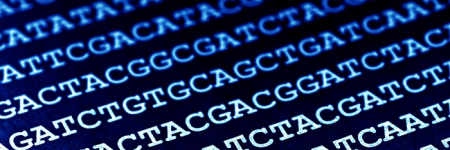
Patient perspectives: managing expectations
Following our insightful patient panel event on 6th March, we explore the importance of preparing for the highs, and lows, of genomic testing

All I want for Christmas is... a family history
At a time of year when many of us will be getting together with relatives, we explore the value of talking about your family's health

Delivering results: the patient perspective
As genomic testing becomes more prevalent, the ability to deliver results sensitively is paramount; so what matters to your patients and their families?

Tuberculosis: genome sequencing and new treatment
TB cases are falling worldwide, but with hard-to-treat strains more prevalent than ever, how can genomics help? And what’s new on the treatment horizon?

Your invaluable genome
Genomic data is the currency of a new era of medicine that promises incredible advances. Here, bioinformatician Nana Mensah explains why

Building on the legacy of the 100,000 Genomes Project
As the pioneering project recruits its last participants, we look forward to the NHS’s plans for a Genomic Medicine Service for all

First RNA-based therapy approved in US and Europe
Gene-silencing technique works without altering the person’s DNA, and prevents harmful proteins from being made in their cells

Rare disease, genomics and the future
In the run-up to Rare Disease Day, we outline what constitutes ‘rare’ and how genomics is used in diagnosis and management

Direct-to-consumer genetic tests at an all-time high…
… but how can healthcare professionals make sure they are equipped to support patients who are worried and distressed about their results?

UK rare disease strategy: the plan for implementation
Four years on from the government’s rare disease strategy, its implementation plan has been published. Here’s our summary of the key areas of focus

New liquid biopsy can detect eight common cancers
Blood test could ‘change the way we screen for cancer’, though more research is needed to ensure its efficacy in a real-world screening context

Cancer immunotherapy: predicting outcomes
Today's monoclonal antibody treatments benefit some patients but can be harmful to others; the search for reliable predictive biomarkers is on


